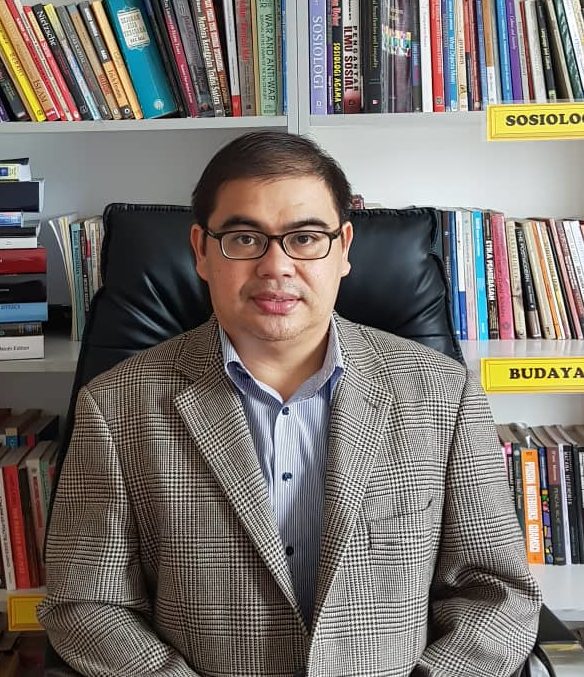
By Peter Sibon
KUCHING, Dec 17: After SUPP, PRS and PDP have announced the number of seats they will contest in the coming state election, GPS top leadership now has to find a winning formula to continue administering Sarawak.
If both Sarawak United Peoples’ Party (SUPP) and Progressive Democratic Party (PDP) were to claim their ‘lost’ seats, there will be a few seats which will have overlapping claims from these two parties and Parti Pesaka Bumiputera Bersatu (PBB), which is the lynchpin in Gabungan Parti Sarawak (GPS).
While Parti Rakyat Sarawak (PRS) has stuck with its 11 seats, SUPP have claimed 20 seats and PDP eight, which will subsequently leave PBB with 43 seats, three less from its present 46.
Herein comes the intrigue as PBB had admitted four assemblymen and assemblywoman into its fold after they won their respective seats under Barisan Nasional (BN)-direct tickets in the last state election in 2016. They are Batu Danau assemblyman Paulus Palu Gumbang, Bekenu assemblywoman Rosey Yunus and Pakan assemblyman Tan Sri William Mawan Ikom. More recently, Mambong assemblyman and former Parti Sarawak Bersatu (PSB) deputy president Datuk Dr Jerip Susil also entered the PBB fold.
Prior to that, Batu Danau, Bekenu and Pakan have been traditionally allocated to Sarawak Progressive Democratic Party (SPDP), which was later rebranded as PDP, while Mambong was traditionally contested by SUPP.
According to Universiti Malaya’s political analyst Assoc Prof Dr Awang Azman Awang Pawi, resolving the matter of seat allocation amicably before the coming Sarawak state election due by 2021 will be a litmus test for top GPS leaders especially its chairman Datuk Patinggi Abang Johari Tun Openg.
“To me, this current issue will be a litmus test for the leadership of CM Abang Jo as the captain of the new team, GPS. And of course, it would be very challenging for him because he has to resolve and tackle this sensitive issue,” Awang Azman told DayakDaily today.
He stressed that one way to solve the matter is to gauge the popularity of these elected representatives in their respective areas.
“The strength of these YBs (elected representatives) lie with their supporters. So, one way for GPS top leadership to gauge their support base is to see how popular they are in their ‘kawasan’ (constituencies). And if for instance, they have more PBB supporters, then it is only wise for GPS leadership to accept the reality. And likewise, if PDP has more supporters in the case of Batu Danau, Bekenu and Pakan, and SUPP has more supporters in Mambong, then this has to be considered,” he said.
Awang Azman also highlighted that besides having a strong support base, the winnability of the respective candidates must also be taken into account.
“The winnability factor among these YBs must also be taken into account as GPS will have to face tough challenges from PH, PSB and other local-based parties. And on top of that, consideration must also be focused on new faces as their replacement,” he stressed.
However, if these two factors still cannot solved the matter, then Abang Johari as the GPS team captain, has no other choice but to use the previous formula.
“We have seen the precedence set by his two predecessors in allowing BN-direct candidates to contest in both the state and general elections. So, there is no reason for Abang Johari not use the same formula if there is deadlock in naming the most winnable candidates before the coming state election,” Awang Azman reiterated.
On a related issue, Awang Azman who is also a research fellow at UM’s Centre for Democracy and Elections (UMcedel) said the coming state election will see the real fight between PH, GPS and PSB.
“It will be very tough and challenging for GPS to retain its two-thirds majority in DUN (Sarawak Legislative Assembly) because if we gauge its strength on the past general election, then at least 39 seats are in danger. This is based on the 12 seats which GPS lost in the 14th general election, multiplied by 2.5 of average seats under these parliamentary constituencies.
“That is the basic analysis on how GPS would fare in the coming election,” he said.
He also reiterated that PH has all the resources from the federal government, while PSB will also pose a danger to GPS as they have been able to recruit influential Dayak leaders to join it.
“As for other local-based parties such as PBK (Parti Bumi Kenyalang) and Star (State Reform Party), they would not make much impact due to lack of resources and credible leaders,” he opined.
Meanwhile, Awang Azman still believed that the best time for GPS to call for the state election will be in March next year.
“The small ‘window’ between Chinese New Year on January 25-26 and the Ramadhan month starting on April 23, is very small. So, to take advantage of the many uncertainties in Putrajaya especially on the issue of prime ministership succession plan, the month of March is still the best for the state election to be held,” he concluded. — DayakDaily







